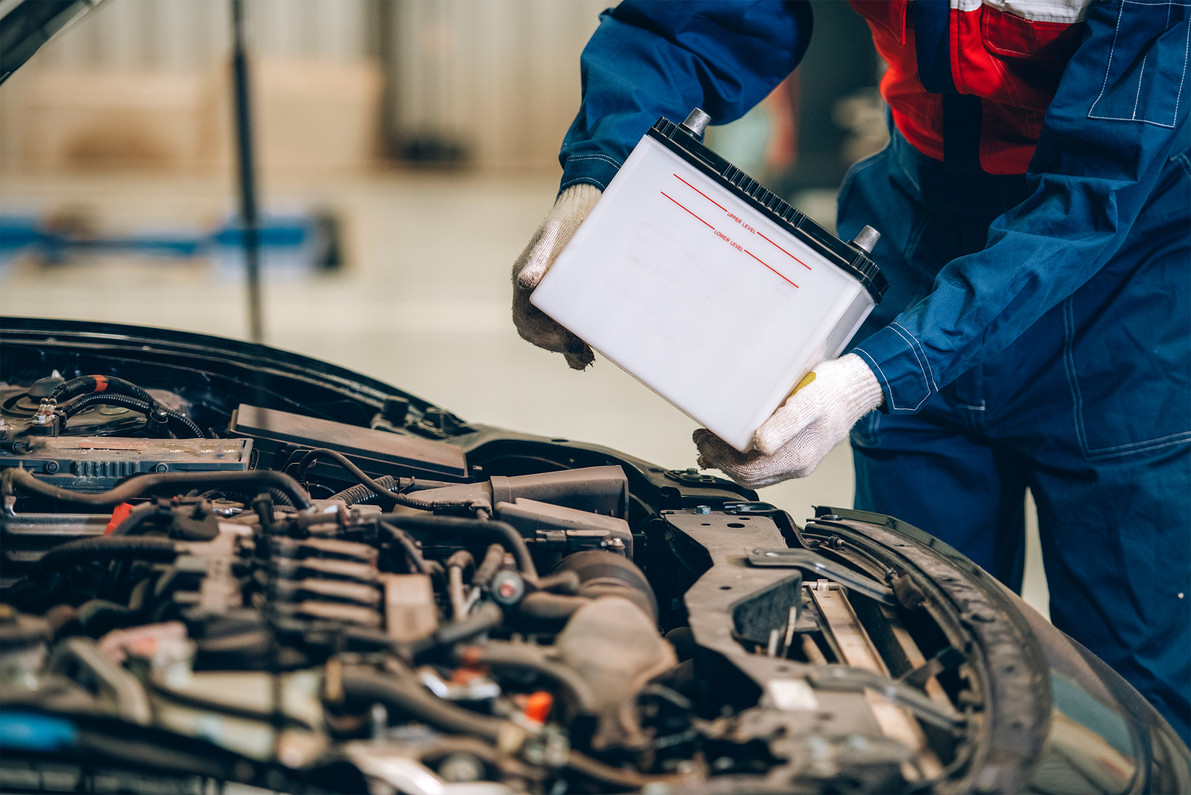RV Batteries: Frequently Asked Questions
RVs are complicated machines and sometimes you have questions about your batteries that are not easily answered. To help you understand your RV better, we’ve compiled a list of common questions about RV batteries and their answers. If your question isn’t on the list, feel free to shoot us an email and we’ll do our best to answer it!
Basic Battery Info
What kind of battery does an RV use?
- There are two main types of RV batteries; the starter battery and the house (deep cycle) battery. The starter battery is used to start the engine, similar to the battery in a car. The house battery is used to power the lights, appliances, and other electronics in the RV when not attached to shore power. They are generally lead-acid batteries, however, Lithium batteries are available at a higher cost. While starter batteries may be similar to car batteries, house batteries are not, as they are used for a different application.
How many batteries does an RV have?
- The battery needs of your RV will depend on many factors, including size and whether it is driven or not. To know which battery and how many you need for your specific model, you will need to contact the manufacturer.
What battery is best for my RV?
- Lead-acid batteries are the classic choice, as they are the cheaper option and have been used for years. Lithium batteries are more expensive, however, they are lighter, smaller, last longer, and require less maintenance.
What is an RV battery bank?
- A battery bank is a combination of two or more batteries, which increases the voltage or amps when you need more power.
How much does an RV battery cost?
- The cost of the battery depends on the model, size, voltage, and more, with the cheapest battery near $50 and the more expensive batteries near $700. Before buying your battery, make sure you research the brand and decide how much bang for your buck you are able to get.
Charging
How do RV batteries charge?
- When you are driving, your batteries charge. When you are connected to shore power, your batteries charge. Your converter works to take this power and charge the battery with it. Your battery also charges when you run your generator. Make sure that you don’t charge your battery constantly, however, as this can drain the wet-cell liquid. Try and strike a balance between using the battery and charging it. Just make sure that the battery charge doesn’t get too low.
Should you leave your battery plugged in all the time when in storage?
- When your RV is in storage, it’s okay to keep it plugged in all the time as long as you are checking the charge and fluid levels about once a month. Monitoring your battery levels is important if you want to keep them healthy and working well.
Battery Life
How long does the house battery last?
- The life of a battery depends on the model and type, how well it’s maintained, and how often you use it. Lithium batteries last longer than lead-acid batteries and can reach 5,000 charge cycles versus the roughly 400-500 charge cycles of a lead-acid battery.
How long will the battery last dry camping?
- If you are using your house battery consistently while dry camping, it can last 2-3 days. If you are conserving your energy, it can last up to a week. You can conserve power by updating the lighting to LED bulbs, turning off the water pump, lowering the heat usage, buying more batteries, and keeping your batteries properly maintained.
Battery Maintenance
How do you install a battery?
- Battery installation should be carried out by a professional, however, if you want to do it without going to a shop, some tips are to turn off all objects that draw power, disconnect the negative power cable and then the positive power cable, clean the cables and switch out the new battery for the old. As these tips are not comprehensive, it is best to consult a professional if you are unsure of the process.
How do you check and monitor batteries?
- There are a few ways to check your batteries. First, you can use the battery monitor in your RV. With the easy read-out, you should know whether it is at a good capacity or whether it needs to be charged. This is the best option, as the other two options are a voltmeter or a hydrometer. Without a monitor, checking your battery can be very difficult, which is why it’s important to keep your RV battery monitor up and working.
How do you maintain RV batteries?
- To keep your battery life looking good, make sure to never let your battery stay at a low charge for long. Keeping the charge low could lead to sulfation, which shortens the life of your battery and can even stop it permanently. Also, make sure not to store your battery in extreme temperatures, as both overheating and freezing can damage the battery.
How do you store RV batteries?
- Batteries naturally discharge over time and if you don’t monitor your battery when in storage, it can go flat and potentially become damaged. Keep in mind that freezing kills flooded cell batteries but a well-charged battery cannot freeze. Consider removing the batteries from the RV while it’s in storage so that you can better monitor and maintain it in the off-season. If you don’t remove the battery from the RV, make sure to at least disconnect the house battery to keep it from being used and accidentally drained. Converters should not be connected to the battery during storage, as this will dry up your battery. Whether you store your battery with the RV or completely remove it for the off-season, checking it once a month should keep it in good condition. Without this monthly maintenance, you could find yourself needing to buy a new battery come next season.
Recent Posts
-
How to Keep Your Pets Safe While Camping
RVing and camping are a great getaway from the hustle and bustle of work and the city and the day-to …Jul 2nd 2024 -
Why Replace Your RV Furniture?
You may wonder when is the best time to replace your RV furniture. There is no one right answer to t …May 20th 2024 -
Can You Put Regular Furniture in an RV?
Many new and old RV owners ask themselves this question when they feel the need to update th …Apr 25th 2024 -
4 Tips for Securing RV Furniture While Traveling | RecPro
How To Secure RV Furniture There are few things that beat going out on an adventure with an RV …Apr 25th 2024 -
How To Keep RV Furniture From Peeling
Peeling RV Furniture | Why it Peels and How to Stop it Your RV furniture is a point of pride on yo …Apr 25th 2024 -
Turning up the Heat With an RV Fireplace
There’s an unlimited number of cool and exciting features you could add to your recreational vehicle …Apr 25th 2024







